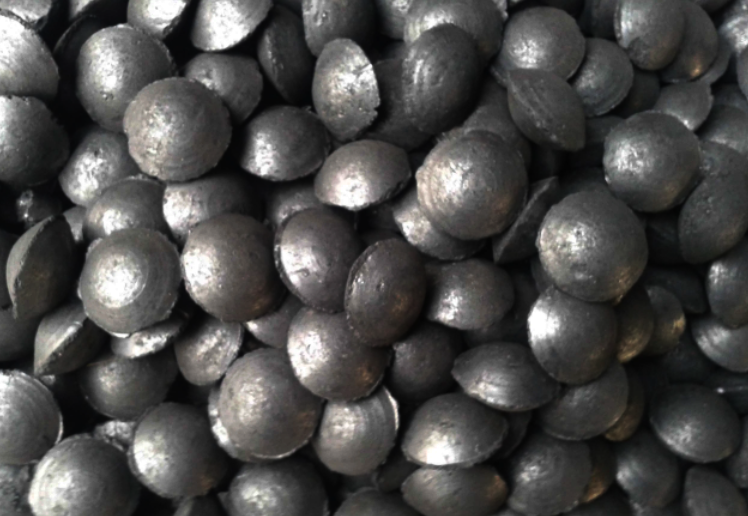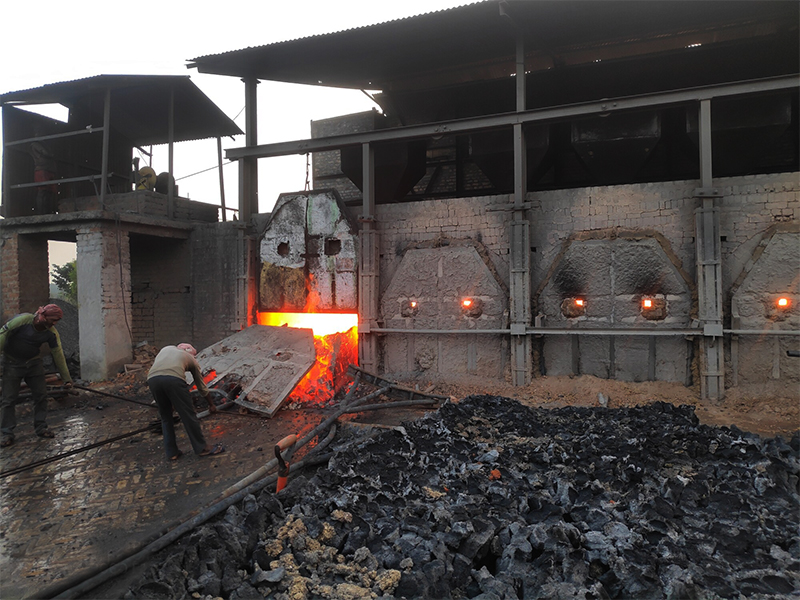
Coke briquettes/coke briquettes production
Coke briquettes play an indispensable role in industry. It is not only an important raw material in the metallurgical industry, but also a key element in the production process of many chemical products.
Due to its unique physical and chemical properties, coke briquettes can provide high temperatures and maintain stable combustion, which is particularly critical for metal refining.
Coke also plays an important role in fertilizer production, chemical raw material preparation and other fields.
1. Coke briquettes
Coke briquettes are an important industrial raw material. They are solid fuels obtained by high-temperature dry distillation of coal in an oxygen-free or low-oxygen environment.
This process not only removes most of the volatile components in coal, but also makes its structure more stable and hard.
The main component of coke is carbon, which enables it to provide stable heat energy at high temperatures and is not easily oxidized.
Coke is widely used in steel production, chemical industry and some specific smelting processes.
In the steelmaking process, coke not only acts as a reducing agent to help iron ore be reduced to iron, but also produces carbon monoxide in the blast furnace to further reduce the oxygen content in the iron ore.
Due to its good thermal stability and energy density, coke is also an indispensable heating material in many industrial furnaces.

2.what is formed coke briquettes
Molded coke blocks are hard and solid carbon blocks formed after high-pressure pressing and heat treatment at a specific temperature in a Coke Briquette Machine. Compared with ordinary coke blocks, they have higher density and lower porosity, so they have better thermal stability and wear resistance.
In the metallurgical industry, molded coke blocks have become an indispensable material in the blast furnace smelting process, which can effectively improve the efficiency of the reduction reaction in the furnace, reduce energy consumption, and reduce the generation of impurities, ensuring the quality of products such as steel.
3.coke briquettes production
Coke block production is a delicate and complex process that starts with strict raw material selection.
Usually, high-quality coal is selected as the main raw material because it has the carbon content and calorific value required to produce high-quality coke.
Before entering the production process, these coals need to be cleaned and sorted to ensure their purity and consistency.
Next is crushing and screening, which aims to process the coal into blocks of uniform size for subsequent heat treatment processes.
Thermal treatment or coking is carried out in an oxygen-free environment at temperatures of more than one thousand degrees Celsius, causing the coal to undergo physical and chemical changes, transforming it into a porous solid structure, the coke. During this process, volatile substances are driven out, leaving behind a substance that is almost pure carbon.
Finally, to ensure that the product meets the needs of specific industrial applications, the coke undergoes a series of quality control tests, including strength, reactivity and particle size distribution. These stringent standards ensure that the coke provides stable and efficient performance in steelmaking and iron furnaces.






